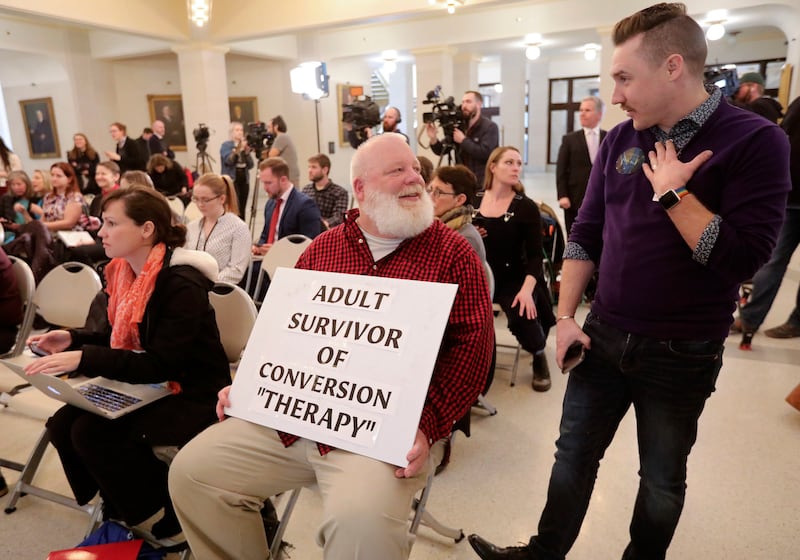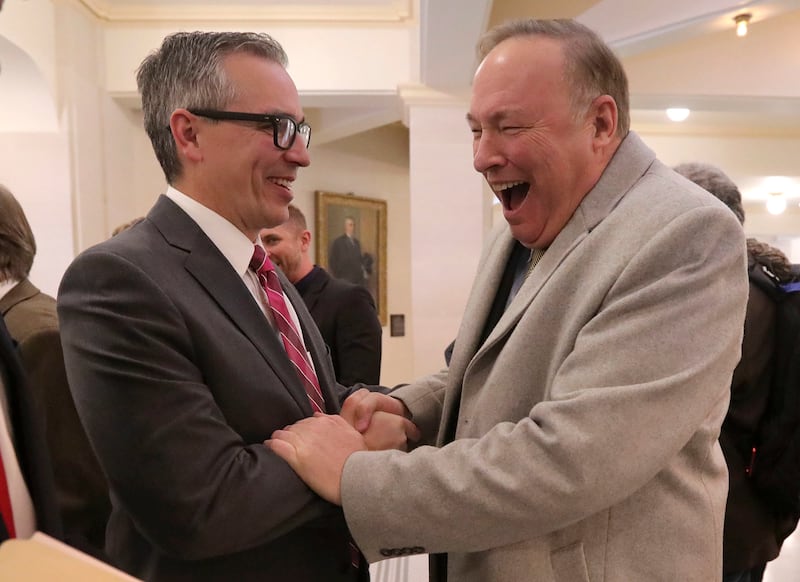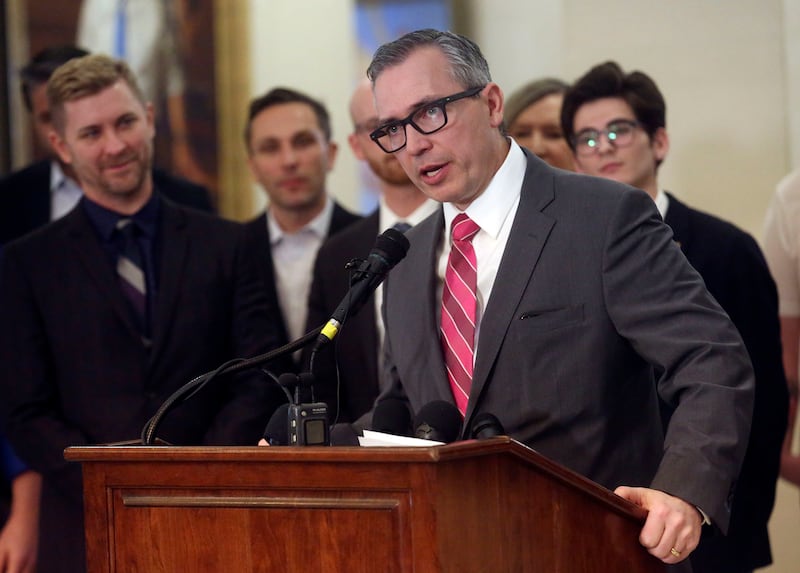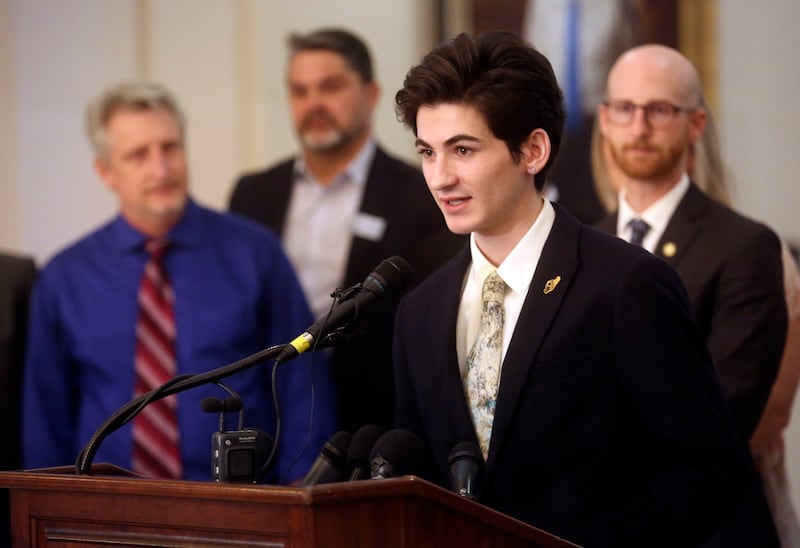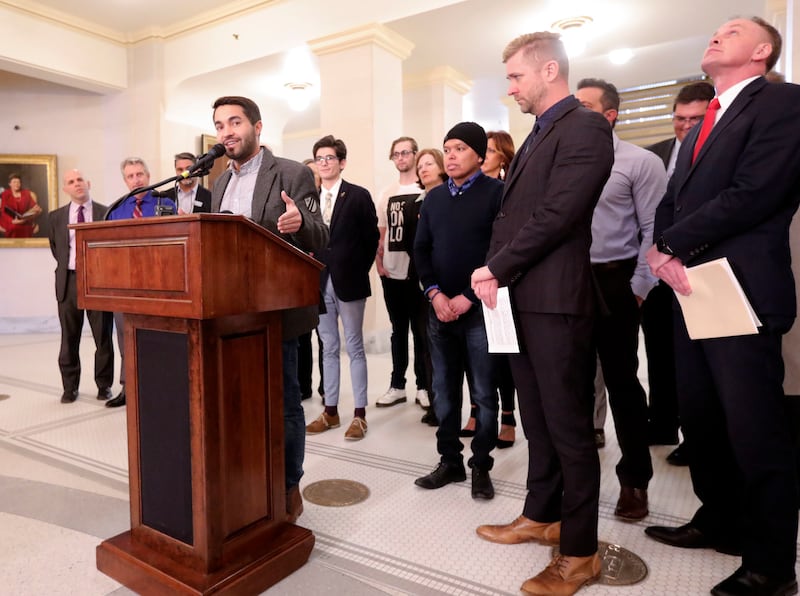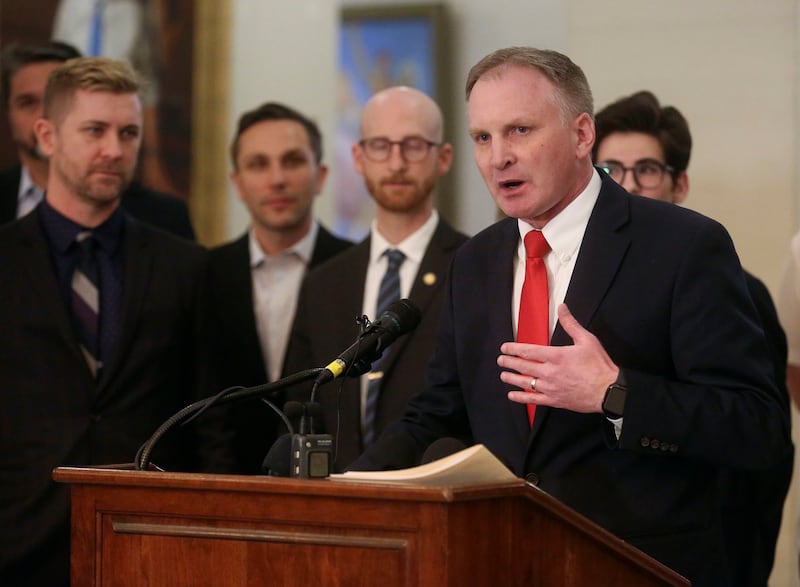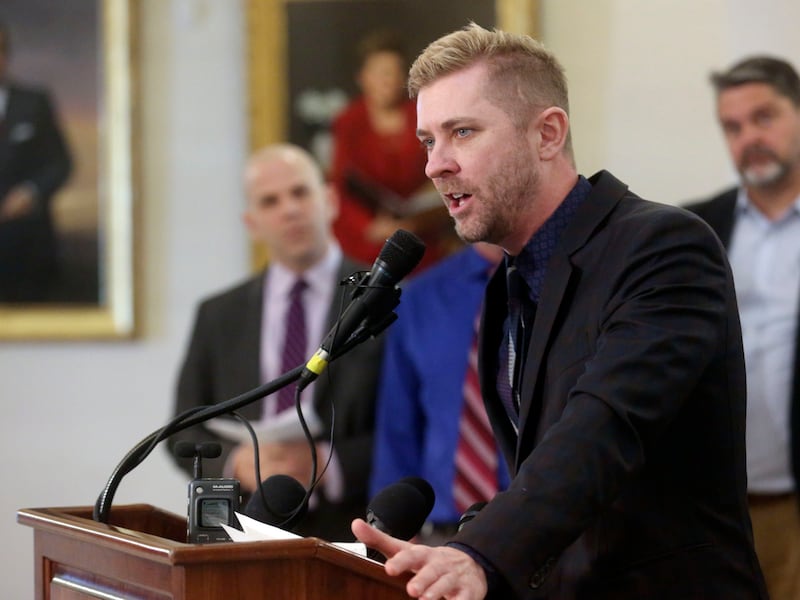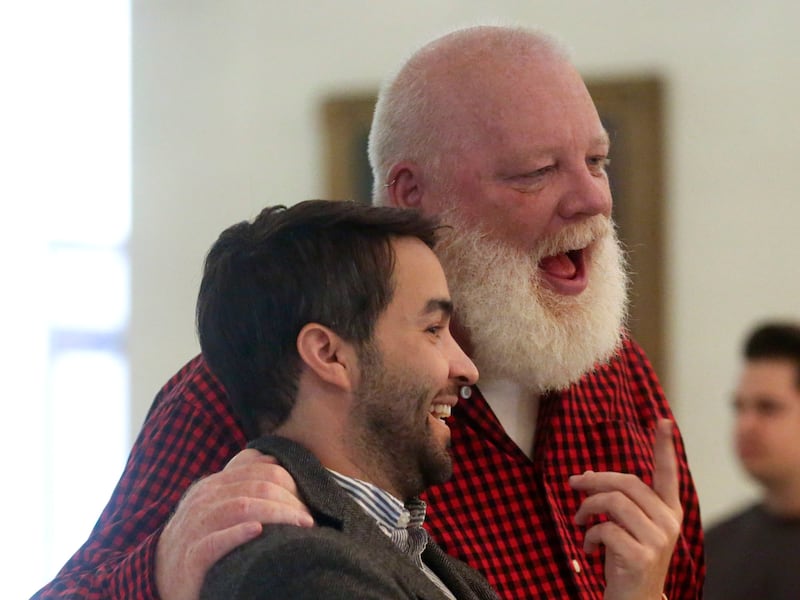SALT LAKE CITY — A bill that would prohibit the practice of conversion therapy on minors in Utah was unveiled Thursday. HB399 would make it illegal for licensed therapists and health professionals to attempt to change or "fix" a child or teen's sexual orientation or gender identity.
The bill will not prevent adults from receiving conversion therapy, nor will it regulate clergy, life coaches or other independent individuals who counsel youth on gender and sexuality.
"Conversion therapy has been proven to be noneffective and is particularly harmful to youth," said the bill's chief sponsor, Rep. Craig Hall, R-West Valley City, at a Thursday press conference at the state Capitol. "This bill will establish regulatory standards and will have a positive impact on the mental well-being of LGBTQ youth throughout the state."
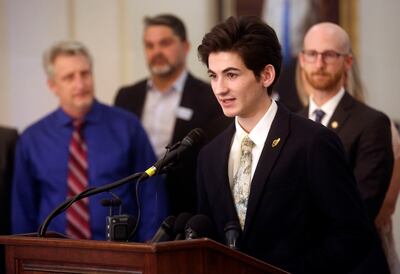
The bill defines conversion therapy as "any practice or treatment that seeks to change the sexual orientation or gender identity of a patient or client." The definition includes mental health therapy that attempts to "change, eliminate or reduce behaviors, expressions, attractions or feelings related to a patient or client's sexual orientation or gender identity."
The definition does not include therapy that "addresses unlawful, unsafe, premarital or extramarital sexual activities in a manner that is neutral with respect to sexual orientation." Additionally, the bill would not prohibit a therapist from discussing a client's "moral or religious beliefs or practices."
Marty Stephens, director of government relations for The Church of Jesus Christ of Latter-day Saints, said the bill's sponsors worked with church representatives to ensure "counseling in alignment with the church’s standards, such as abstinence before marriage, does not come under the definition of conversion therapy."
The church will not oppose the legislation as it is currently written, according to Stephens. "We have repeatedly stated the church denounces any therapy including conversion and reparative therapies that subjects people to abusive practices in Utah and around the world," he said.
Sen. Daniel McCay, R-Riverton, will be the senate sponsor for the bill and acknowledged Thursday that he is not a "prototypical sponsor for an issue like this."
"This is what Utah does when Utah is at its best. We come together, we work together, we put our arms around one another and we try to find solutions," he said.
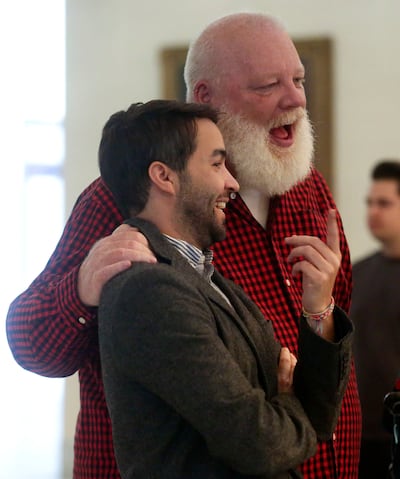
Because there are no professionals in Utah who call themselves conversion therapists, some have questioned whether the bill is necessary. Others have expressed concern that a bill banning conversion therapy could infringe on religious freedom or the right of free expression and potentially interfere with efforts to help teens live according to their religious beliefs.
Clifford Rosky, a law professor at the University of Utah and a member of gay rights advocacy group Equality Utah’s advisory council, said Thursday that the bill would not prohibit anyone from expressing their personal opinions about sexual orientation or anything else. The state, however, has the authority to prevent doctors and therapists from engaging in practices that are dangerous and discredited, he said.
"The bill is clearly constitutional," he said. "All of our nation’s courts have upheld laws that protect children from conversion therapy, including two federal appeals courts."
If the bill is passed, licensed professionals, including therapists, nurses, psychologists and psychiatrists who practice conversion therapy would be subject to investigation and disciplinary action by the appropriate state board, such as the Division of Occupational and Professional Licensing.
Nathan Dalley, a 19-year-old who is double-majoring in biology and philosophy at the University of Utah, said he went through conversion therapy when he was a high school student living in Lehi and shared his experience at Thursday's press conference.
He said he initially sought conversion therapy three years ago because he believed his depression was caused by his attraction to men and the only way to get better was to "choose not to be gay."
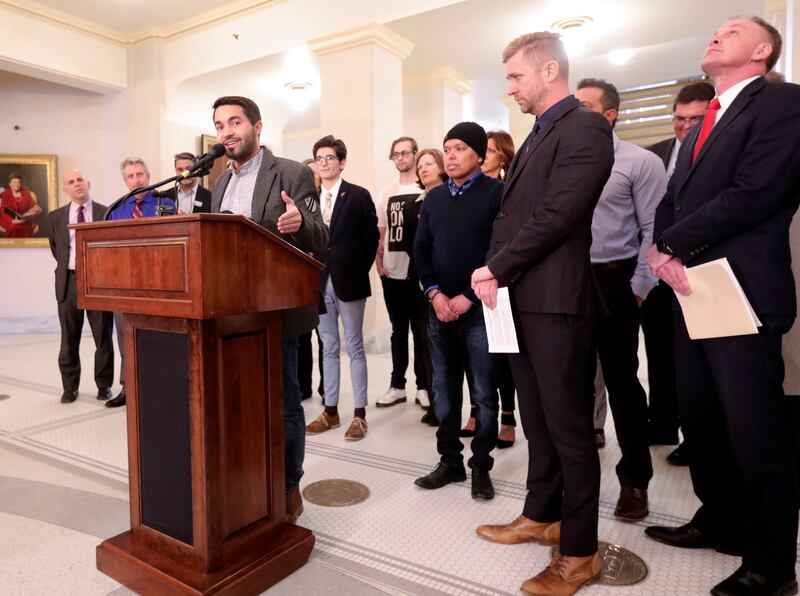
According to Dalley, the therapist told him the source of his same-sex attraction was childhood trauma and bad relationships. Dalley was told he could overcome his same-sex attraction if he became more muscular and played sports with other boys. The therapist also recommended Dalley snap a rubberband against his wrist when he had gay thoughts, he said.
"The therapy that was supposed to be changing my sexuality made me spiral deeper into depression, anxiety and shame about who I am," Dalley said. Eventually, he attempted suicide.
McCay said he hopes the bill will save lives.
"It is important for our youth to understand how much we love you and value you," said McCay addressing young people in the state. "We want every single one of you to be part of the future. We don’t want to lose any of you."

